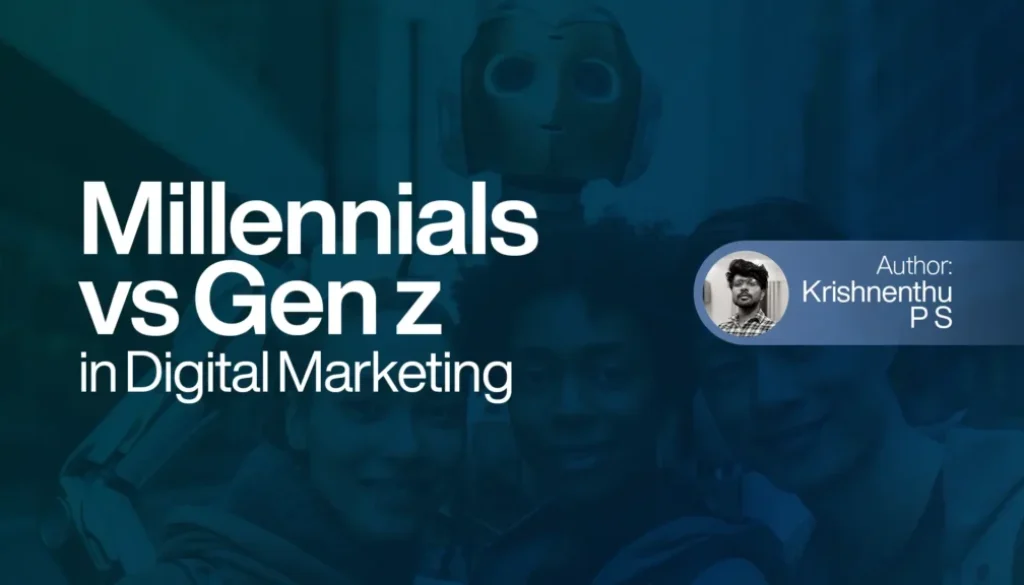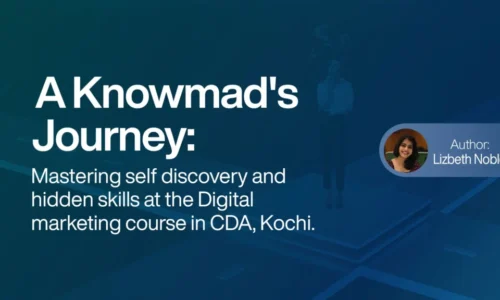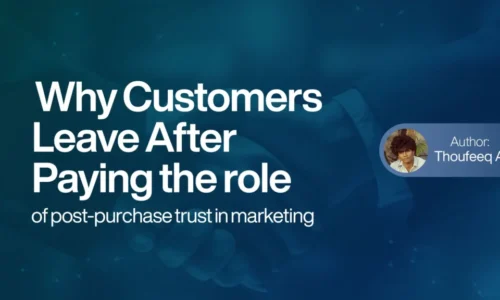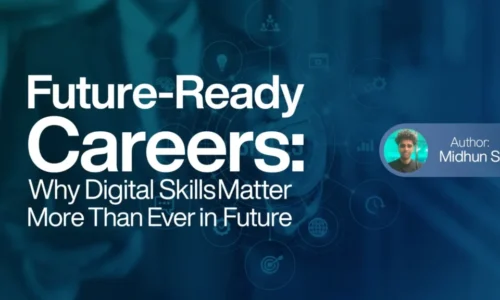Millennials vs Gen Z in Digital Marketing
Table of Content
1. Introduction: Why Generational Marketing Matters
In a landscape where content is consumed in seconds and loyalty shifts at the click of a button, knowing your audience deeply is non negotiable. Millennials (born 1981 – 1996) and Gen Z (born 1997 – 2012) might seem similar, but they respond to digital marketing in contrasting ways. For digital marketers and small business owners, decoding these differences can drive more engagement, better conversions, and smarter brand positioning.
2. Defining the Digital Generations: Millennials vs Gen Z
Millennials are digital explorer they witnessed the birth of social media and search engines. They’re comfortable with online experiences but value face to face interactions too. The Gen Z generation was raised in an era of technology. They live in the mobile first universe, multitasking across multiple devices and apps. They expect seamless, personalized, and interactive digital encounters.
Understanding who they are isn’t just about birth years it’s about values, habits, and expectations.
- Millennials value experience, brand ethics, and convenience
- Gen Z emphasizes individuality, expression, and entertainment
3. Platform Preferences and Online Behavior
Millennials created their online presence using Facebook, YouTube, and other websites. They interact more deeply on forums and blogs, often using digital media for personal development and networking.
Gen Z prefers fast moving platforms like Instagram, Snapchat, TikTok, and even connecting spaces like Discord. Their interactions are visual, short form, and reactive. If a startup is aiming at Gen Z, having a TikTok strategy isn’t optional it’s essential.
Startups and marketers must know where their audience lives online to be present in the right spaces.
4. Content Consumption Styles
Millennials lean toward informative, well structured content:
- Long form blog posts
- Educational webinars
- Explainer videos
Gen Z consumes snackable, bite sized media:
- Reels and short videos
- Visual memes
- Interactive polls and stories
Both generations love authenticity, but the delivery matters. Gen Z wants to be entertained while informed. Millennials appreciate context and depth. The challenge for marketers? Repurpose content smartly without diluting value.
5. Brand Engagement and Loyalty
Millennials are devoted to companies that have a clear mission and stand for something. They research before trusting a brand and appreciate ongoing engagement like newsletters or loyalty programs.
Gen Z expects brands to earn their attention, but they do so quickly. Their loyalty is dynamic built on consistent value, rapid engagement, and real time responses.
Digital marketers can reach both with cause driven campaigns, but need speed and relevancy for Gen Z and depth for Millennials.
6. Influence of Social Proof and Trends
Social influence is powerful, but different across generations:
- Millennials trust experts, reviews, and polished influencers
- Gen Z follows relatable micro influencers and viral trends
Startups should consider UGC (User Generated Content) to tap into Gen Z’s love for peer validation. Testimonials or case studies are more effective with millennials.
For students exploring content strategy, influencer partnerships can be segmented by style and authenticity not just follower count.
7. Purchasing Patterns and Triggers
Millennials are research driven shoppers they compare products, read blogs, and evaluate price vs value. Discounts appeal, but they want the full story first.
Gen Z buys based on impulse and visual storytelling. Think limited edition drops, aesthetic packaging, and social buzz. They follow the “see now, want now, buy now” philosophy.
Digital marketing students and startups can use:
- Email funnels, reviews, and retargeting for Millennials
- Interactive product showcases, AR try ons, and TikTok promos for Gen Z
8. Strategic Takeaways for Students and Startups
– For students:
- Understand persona segmentation
- Learn cross platform storytelling
- Explore generational analytics tools
-For startups:
- Don’t try to please both generations with one approach
- Test and iterate platform specific campaigns
- Use AI powered insights to adapt your tone and visuals in real time
Successful digital marketing isn’t one size fits all. It’s precision tuned for emotional resonance and behavioral engagement.
Final Thoughts
Millennials and Gen Z are shaping the future of digital engagement each in their own ways. Millennials values thoughtful content and a long lasting relationships, while Gen Z wish speed, originality, and entertainment. For digital marketers, students, and startup founders, knowing the elegant is more than a competitive edge it’s the foundation for connection in a noisy world.




